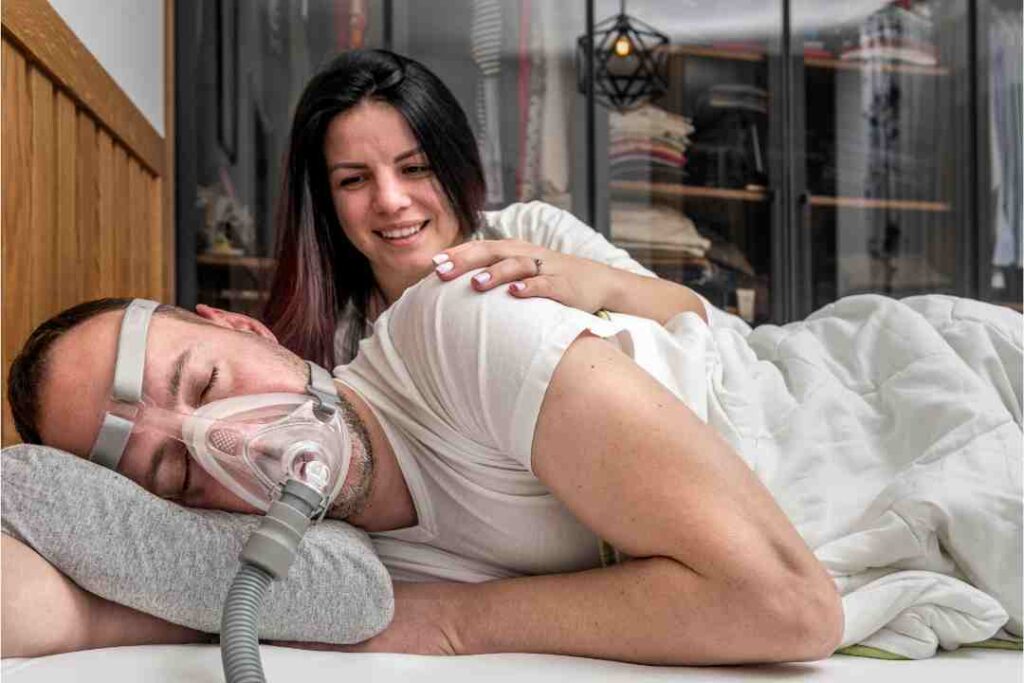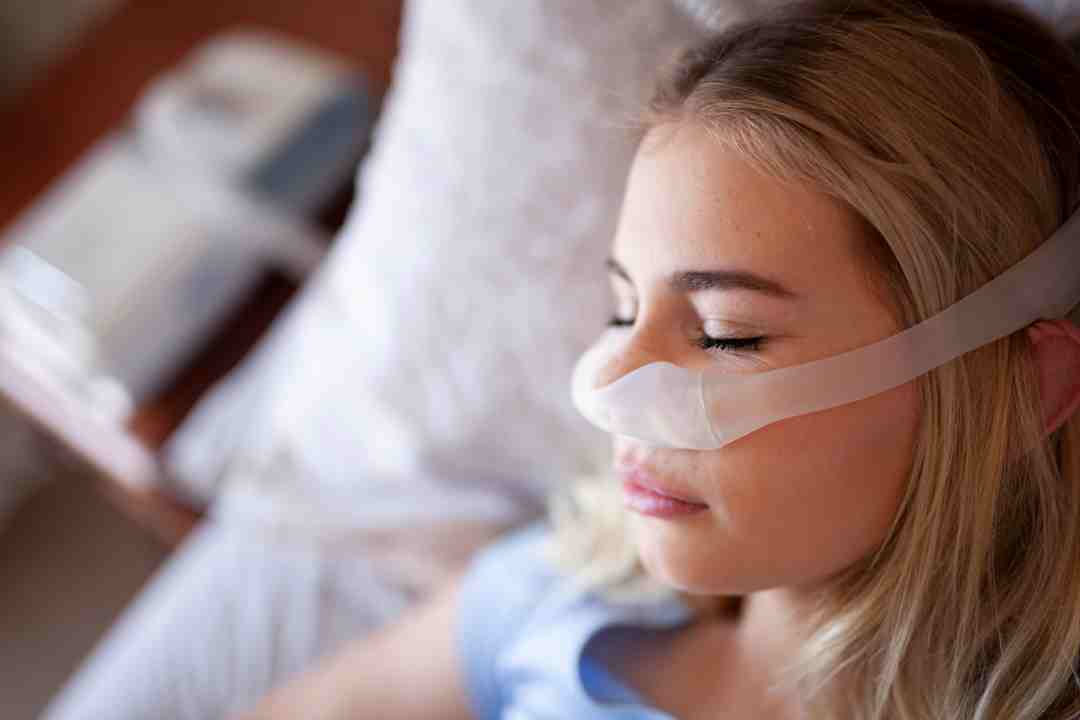Finding the Best ResMed Mask for Your Specific Sleep Apnea Needs
Sleep apnea is a common sleep disorder that affects millions of people worldwide. It is characterized by pauses in breathing or shallow breathing during sleep, which can lead to a variety of health complications if left untreated. If you have been diagnosed with sleep apnea, finding the right ResMed mask for your specific needs is crucial for effective treatment. In this article, we will guide you through the process of understanding sleep apnea, the importance of proper treatment, and how to choose the best ResMed mask for you.
Understanding Sleep Apnea
Sleep apnea machine is a sleep disorder that affects millions of people worldwide. It occurs when the muscles in the throat relax and obstruct the airway, causing breathing to repeatedly stop and start during sleep. This interruption in breathing can happen multiple times throughout the night, leading to fragmented and poor-quality sleep.
There are three main types of sleep apnea:
- Obstructive Sleep Apnea (OSA): This is the most common type of sleep apnea. It occurs when the throat muscles relax and block the airway, causing a complete or partial obstruction. OSA is often characterized by loud snoring, gasping or choking during sleep, and frequent awakenings.
- Central Sleep Apnea (CSA): Unlike OSA, CSA is not caused by a physical obstruction. Instead, it happens when the brain fails to send the proper signals to the muscles that control breathing. People with CSA may experience pauses in breathing without any snoring or choking sounds.
- Complex Sleep Apnea Syndrome (CSAS): Also known as treatment-emergent central sleep apnea, CSAS is a combination of both obstructive and central sleep apnea. It typically occurs when OSA is left untreated or not effectively managed.
Identifying the symptoms of sleep apnea is crucial for early detection and proper treatment. Some of the common symptoms include:

- Loud Snoring: One of the most noticeable signs of sleep apnea is loud and persistent snoring. The sound is often disruptive and may disturb the sleep of both the affected individual and their partner.
- Excessive Daytime Sleepiness: People with sleep apnea often feel excessively tired and fatigued during the day, regardless of how much sleep they had the night before. This excessive daytime sleepiness can interfere with daily activities and significantly impact overall quality of life.
- Morning Headaches: Waking up with a headache is another common symptom of sleep apnea. The frequent interruptions in breathing during sleep can lead to reduced oxygen levels in the blood, causing headaches upon waking up.
- Irritability: Sleep apnea can cause irritability and mood swings due to the constant disruption of sleep. This can affect personal relationships and overall emotional well-being.
- Difficulty Concentrating: Poor sleep quality can impair cognitive function and make it difficult to concentrate, remember things, and stay focused throughout the day.
If you are experiencing any of these symptoms, it is important to consult a healthcare professional for a proper diagnosis. Sleep apnea can have serious health consequences if left untreated, including an increased risk of high blood pressure, heart disease, stroke, and diabetes. With the right treatment and management, however, individuals with sleep apnea can experience significant improvements in their sleep quality and overall well-being.
The Importance of Proper Treatment for Sleep Apnea
Sleep apnea is a serious sleep disorder that affects millions of people worldwide. It is characterized by pauses in breathing or shallow breaths during sleep, which can lead to fragmented sleep and a range of health problems. Proper treatment for sleep apnea is crucial in order to minimize the risks associated with this condition and improve overall well-being. Click here to read about Full Face vs. Nasal Pillow ResMed Masks: Which Type Suits You?
Risks of Untreated Sleep Apnea
Untreated sleep apnea can have serious consequences for your overall health. It increases the risk of high blood pressure, heart disease, stroke, diabetes, and obesity. The repetitive drops in blood oxygen levels that occur during sleep apnea episodes can put a strain on the cardiovascular system, leading to an increased likelihood of developing heart-related conditions. Moreover, the chronic sleep deprivation caused by untreated sleep apnea can disrupt the body’s hormonal balance, potentially contributing to weight gain and the development of metabolic disorders.
In addition to these cardiovascular and metabolic risks, untreated sleep apnea can worsen existing conditions such as asthma and acid reflux. The intermittent oxygen deprivation and the resulting stress on the body can trigger asthma attacks and exacerbate the symptoms of acid reflux, making these conditions more difficult to manage.

Furthermore, untreated sleep apnea can impair your cognitive function and decrease your overall quality of life. The constant interruptions in sleep can lead to daytime sleepiness, difficulty concentrating, memory problems, and a general feeling of fatigue. This can affect your performance at work or school, as well as your ability to engage in daily activities and enjoy a fulfilling lifestyle.
Benefits of Continuous Positive Airway Pressure (CPAP) Therapy
Continuous positive airway pressure (CPAP) therapy is a common and highly effective treatment for sleep apnea. It involves wearing a ResMed mask connected to a CPAP machine that delivers a constant flow of pressurized air to keep the airway open during sleep. This gentle stream of air acts as a splint, preventing the collapse of the throat tissues and allowing for uninterrupted breathing throughout the night.
CPAP therapy has been shown to effectively alleviate the symptoms of sleep apnea and improve sleep quality. By ensuring a continuous and adequate supply of oxygen, CPAP therapy helps to reduce the frequency and severity of apnea episodes, allowing for a more restful and rejuvenating sleep. As a result, individuals who undergo CPAP therapy often experience increased energy levels, improved mood, and enhanced cognitive function.
In addition to its immediate benefits, CPAP therapy also has long-term advantages. By effectively treating sleep apnea, CPAP therapy can help reduce the risk of developing or worsening associated health conditions, such as high blood pressure, heart disease, and diabetes. It can also contribute to weight management by improving metabolic function and reducing the likelihood of weight gain.
Overall, CPAP therapy plays a vital role in the management of sleep apnea and the promotion of optimal health. It provides individuals with a non-invasive and highly effective treatment option that can significantly improve their quality of life. If you suspect that you have sleep apnea, it is important to seek medical evaluation and consider CPAP therapy as a potential solution to address this condition.
Introduction to ResMed Masks
Welcome to the world of ResMed masks, where comfort and effectiveness meet to provide you with a restful night’s sleep. ResMed masks are not just any ordinary medical device; they are specially designed to enhance your CPAP therapy experience. Let’s dive into the fascinating details of these remarkable masks.
What is a ResMed Mask?
A ResMed mask is a true game-changer in the world of sleep apnea treatment. It is a medical device meticulously crafted to be worn during sleep, working in harmony with a CPAP machine. These masks are ingeniously engineered to provide you with a comfortable and secure fit, ensuring that your therapy is as effective as possible.
Imagine slipping into a mask that feels like a gentle embrace, allowing you to drift off into a peaceful slumber. ResMed masks are designed with your comfort in mind, so you can experience the full benefits of your CPAP therapy without any unnecessary discomfort.
Not only do ResMed masks offer unparalleled comfort, but they also come in a variety of styles to suit your individual needs. Whether you prefer a nasal mask, full-face mask, or a combination of both, ResMed has you covered.
How Does a ResMed Mask Work?
Now that you have an overview of what ResMed masks are, let’s delve into the fascinating inner workings of these incredible devices. ResMed masks work by creating a secure seal around your nose, mouth, or both, ensuring that the pressurized air from your CPAP machine is delivered precisely to your airway.
Imagine this seal as a protective shield, guarding against any potential air leaks that could compromise the effectiveness of your therapy. By forming a tight seal, ResMed masks ensure that the prescribed pressure is maintained throughout the night, allowing you to experience the full benefits of your CPAP treatment.
But how does this seal work? ResMed masks utilize advanced technology and innovative design features to achieve a perfect fit. The masks are carefully crafted using high-quality materials that conform to the unique contours of your face, providing a personalized and comfortable fit.
Additionally, ResMed masks incorporate adjustable straps and headgear to ensure a secure and stable fit throughout the night. These features allow you to customize the fit of your mask, so you can sleep soundly without any worries of it shifting or becoming loose.
Furthermore, ResMed masks are designed with user-friendly features in mind. They are easy to assemble, disassemble, and clean, making your CPAP therapy experience hassle-free and convenient.
So, whether you’re a new CPAP user or a seasoned pro, ResMed masks are here to revolutionize your sleep apnea treatment. Say goodbye to restless nights and hello to a world of comfortable and effective therapy.
Types of ResMed Masks
Full Face Masks
Full-face masks cover both the nose and mouth, providing a secure seal for individuals who breathe through their mouth or experience nasal congestion. These masks are ideal for those who require higher air pressure or those who tend to breathe through their mouth during sleep.

Nasal Masks
Nasal masks cover only the nose, offering a comfortable fit for individuals who breathe primarily through their nose. These masks are less intrusive than full-face masks and are suitable for individuals who do not require coverage of the mouth.
Nasal Pillow Masks
Nasal pillow masks have small, lightweight cushions that rest directly against the nostrils, providing a minimal and comfortable option for individuals who prefer a less obtrusive mask. These masks are suitable for those who breathe through their nose and want a more open and flexible feel. Visit https://www.tga.gov.au/news/safety-alerts/philips-face-and-nasal-masks-magnetic-clips to read about Philips’ face and nasal masks with magnetic clips.
Choosing the Right ResMed Mask for Your Needs
Factors to Consider When Choosing a ResMed Mask
When selecting a ResMed mask, there are several factors to consider. These include the type of sleep apnea you have, your breathing patterns, and your personal preferences. Consulting with a healthcare professional or a ResMed mask specialist can help you determine which mask would be most suitable for your specific needs.
Personal Comfort and Fit
Comfort and fit are essential when choosing a ResMed mask. It is important to find a mask that feels comfortable against your skin and does not cause any discomfort or pressure points during sleep. Proper fit is crucial to prevent air leaks and ensure effective therapy.
Lifestyle Considerations
Your lifestyle and sleep habits may also influence the type of ResMed mask you choose. If you are an active sleeper or frequently change positions during sleep, a more secure and stable mask may be suitable. Additionally, if you wear glasses or prefer to read or watch TV before sleep, a mask with a minimal field of vision obstruction may be preferred.
By considering these factors and consulting with healthcare professionals, you can find the best ResMed mask that suits your specific sleep apnea needs. Remember, choosing the right mask is essential for optimal therapy effectiveness and overall treatment success.
